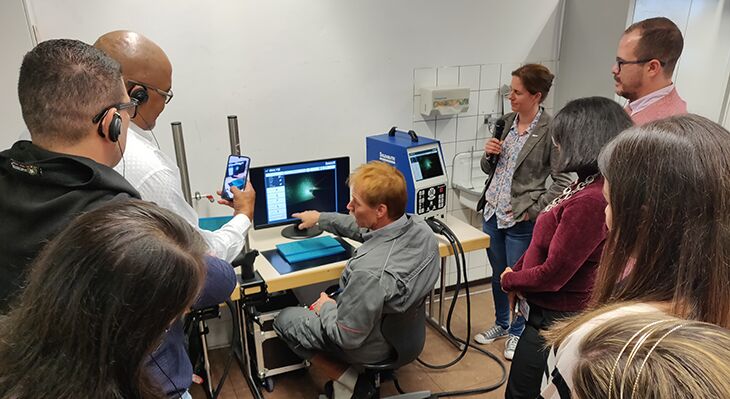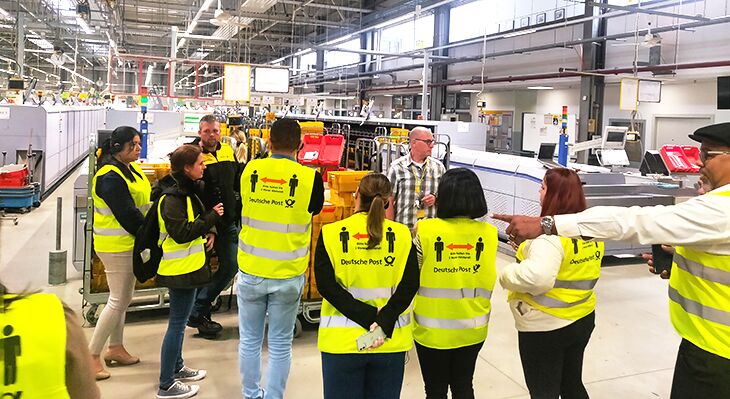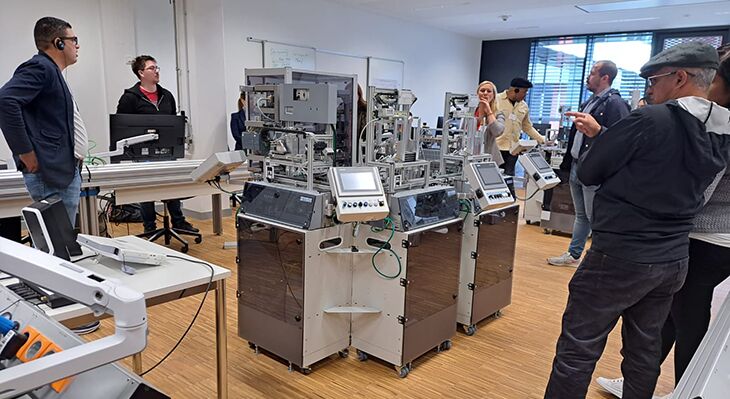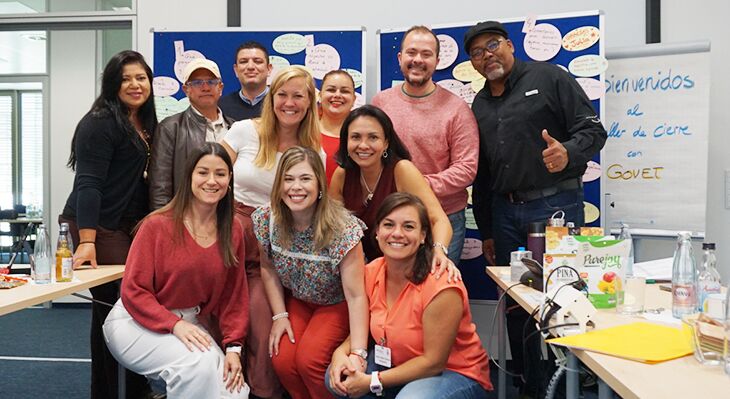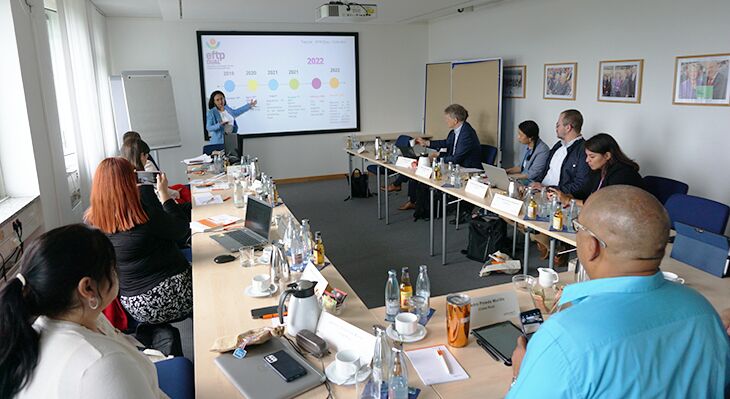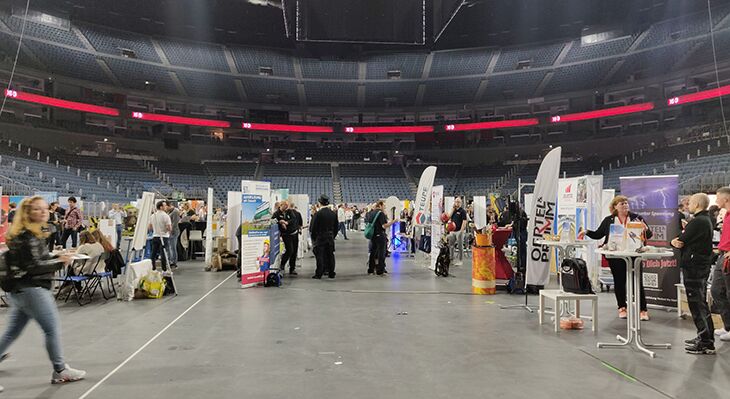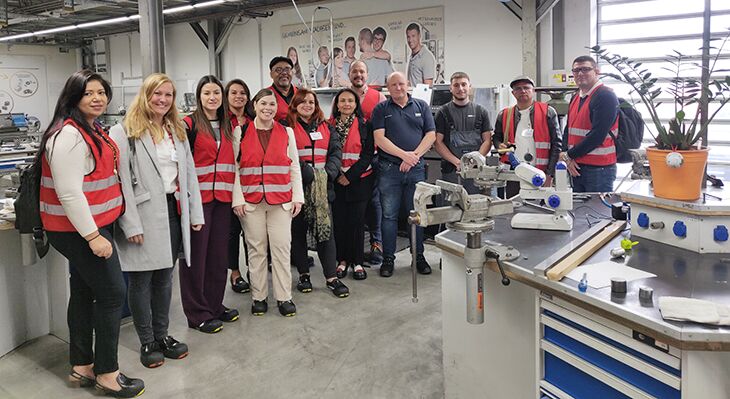Working group from Costa Rica on VET visits Germany
12.06.2023
Getting to know Germany's dual vocational education and training system in all its facets was the declared goal of the working group from Costa Rica's Vocational Education and Training Commission. With this in mind, GOVET organised a one-week study visit to Germany for the ten-member delegation. The conclusion of the participants at the end: Goal achieved.
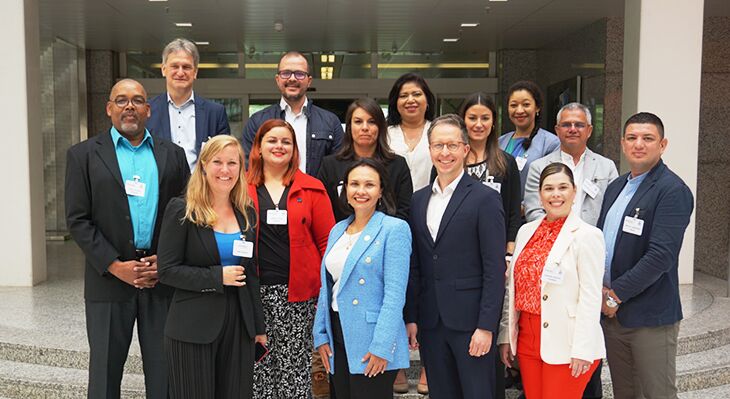
"The study visit to Germany was a great experience!" stated Catalina Blanco Araya, coordinator of the working group of the Vocational Training Commission to advise and promote dual vocational training in Costa Rica (Comisión Asesora y Promotora de la EFTP Dual - CAP). GOVET had invited ten representatives of the working group to Germany for a one-week study visit on behalf of the Federal Ministry of Education and Research (BMBF). The aim of the delegation was to get to know the structures and functioning of the dual system in Germany during the study visit and to experience it in practice. To this end, various organisations and companies were visited in order to illustrate the diversity of the actors and their joint commitment to dual VET.
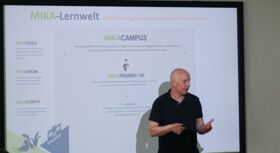
From the Federal Institute for Vocational Education and Training (BIBB), Michael Härtel, head of the department "Teaching and Learning, Vocational Training Personnel", and his colleague Franziska Kupfer gave an insight into the Ordinance on Trainer Aptitude (AEVO), as well as the current discussions on the topic of reorganisation of trainer qualification. A look back at the history of the development of the AEVO caused some surprise among the participants: In the mid-2000s, the AEVO was suspended for several years. It was hoped that companies would become more involved in order to create additional training places. However, this did not happen; instead, there were quality problems in the training as a result and the dropout rate increased. In Costa Rica, the duration of the further training course for company trainers is currently being discussed. The experiences from the German perspective can make a useful contribution to the discussion. Michael Härtel also presented the new seminar programme around the MIKA Campus, which is intended to strengthen digital and media skills among VET staff.
Dual training in company practice
Digital skills are also high on the agenda at an IT company like the CONET Group. Human Resources Manager Sabine Cox and her colleagues presented the group's extensive training programme. Among the now almost 2,000 employees, there are about 15 new trainees every year. The company has already received several awards for its impressive commitment. This is a good example of how training can be designed in an innovative and appealing way through close interaction with the trainees and at the same time serves to sustainably recruit skilled workers in the company.
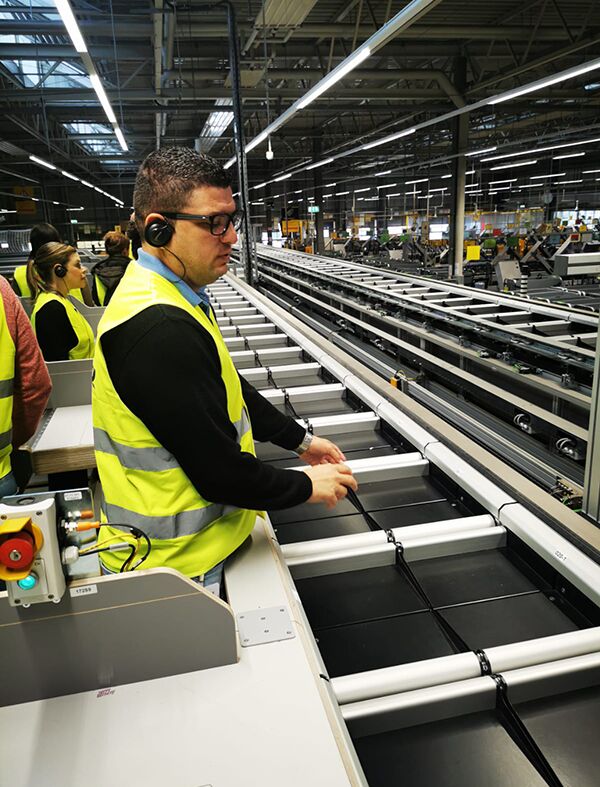
Recruiting skilled workers and enabling individual training paths is also at the heart of the corporate culture at Deutsche Post DHL. At the letter distribution centre in Troisdorf, where over a million letters are processed every day, branch manager Katharina Putz presented Deutsche Post's multifaceted commitment to training. From training as a specialist for courier, express and postal services, to training as a mechatronics technician, to dual studies in various fields and in-service master training or bachelor's and master's degrees, everything is on offer. A guided tour of the centre with state-of-the-art machines for sorting letters rounded off the visit for the Costa Rican delegation.
Key role of the interfaces school - training - company
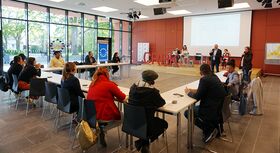
In addition to the company-based part of dual vocational training, the Carl-Reuther-Berufskolleg in Hennef, one of the most modern schools in the region, presented what innovative and practice-oriented teaching can look like today. Headmaster Thomas Heußner and the staff pointed out the important function of the school as a link between trainees and companies. As inspiration for their own context, the representatives of the Costa Rican working group took away the approaches to information exchange and regular visits and appointments between trainers and teachers.
Frank Prokop, training manager of the metal-producing company GKN Sinter in Bonn, underlined the importance of close coordination between all actors in the vocational training system. From the company's experience, pupils need better vocational orientation, also more with regard to the diverse opportunities in dual training. GKN Sinter offers many different training paths and forms within the company. For the participants from Costa Rica, it became clear how individually and flexibly companies can act within the framework of German legislation on vocational training in order to provide training. Another impressive highlight was the presentation by the company's training ambassador, a trainee in his final year as an industrial mechanic, who promotes training at GKN Sinter in schools.
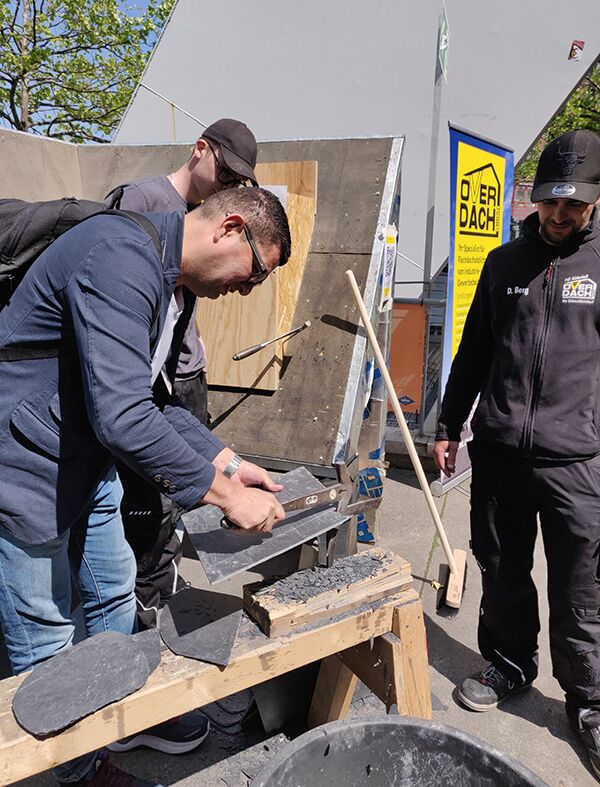
The guests from Costa Rica were then able to experience an important tool for career orientation in action: The delegation visited one of the largest fairs of its kind in the region, the Azubi MeetUp fair in the Lanxess Arena Cologne, organised by the Cologne Chamber of Crafts. Here, craft enterprises of different orientations and sizes presented themselves. In conversation with the participants of the delegation, it became clear that such formats promise great success in the recruitment of new trainees, and it also became evident once again that dual vocational training is one thing above all for many companies: a matter of the heart and an integral part of many companies’ DNA.
The commitment of the chambers became even more multifaceted with a visit to the joint training workshop (GLW) of the Bonn-Rhein-Sieg Chamber of Industry and Commerce in Siegburg. The Costa Rican guests learned about the diverse offers of the chambers and their special role in dual training. As an inter-company training centre, GLW offers advanced training courses to relieve companies of the burden of training - another instrument in the German system to make training possible, particularly in SME’s, and to provide high-quality training. Team leader for training counselling and management Frank Clauß also introduced the programme of training ambassadors: one of the trainees who visit schools to talk about her training gave a vivid account of her exciting experiences - the delegation participants were enthusiastic about this approach.
Networking and exchange of expertise
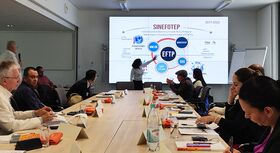
The round table organised by iMOVE -Training Made in Germany, to which representatives of the education industry were invited, was also a proven and valuable networking platform during this study visit. After a keynote speech by the Costa Rican delegation on the current state of vocational education and training in the country, there was a lively exchange on further development opportunities and many business cards changed hands.
Among the first dual training programmes that have been implemented in Costa Rica since the beginning of 2022 are some professions in the manufacturing sector, such as industrial electronics or industrial maintenance. Against this backdrop, Thomas Felkl from the BIBB work area "Electrical, IT and Scientific Occupations" explained the process of regulatory procedures and the structure of the training regulations using the example of the occupation of mechatronics technician. This topic met with great interest among all participants, because it is currently still a challenge in Costa Rica to include the perspective of companies in the creation of training plans.
Moritz Renner from the Friedrich-Alexander University Erlangen-Nuremberg, project manager in the InnoVET project BIRD, funded by BMBF, for the implementation of innovative cross-sectoral training programmes on Industry 4.0 and Artificial Intelligence, explained how initial training can then be supplemented by further training. The aim of the project is to develop new qualifications that will give a profile to the further education level "Certified Vocational Specialist" created in the new Vocational Training Act, i.e. at level 5 of the German Qualifications Framework (DQR).
In the final workshop, the participants reflected on the most important findings, identified topics that should be explored in greater depth in the bilateral cooperation with the BMBF and underlined the importance of the exchange format. On behalf of the Federal Ministry of Education and Research (BMBF) and within the framework of the bilateral VET cooperation between Germany and Costa Rica, the Federal Government Agency for International VET Cooperation (GOVET) advises the Costa Rican Vocational Training Commission (CAP) on the introduction of the dual VET system. The CAP is made up of representatives of state ministries, institutions, the private sector and social partners, and makes political and strategic decisions on issues relating to the design, financing and institutional and legal consolidation of dual vocational education and training. In addition, the BMBF supports and advises the CAP working group (Equipo Técnico) on the operational implementation of Educación Dual (EFTP dual) via GOVET.
